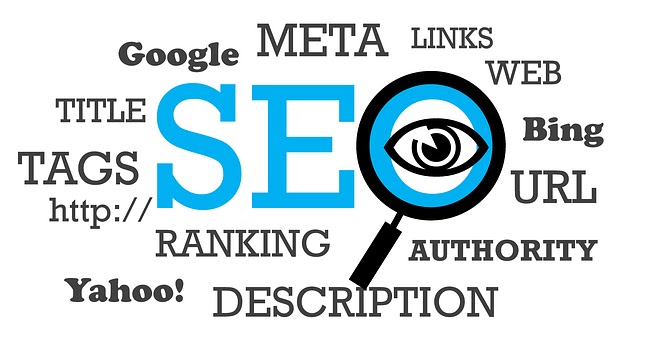SEO Basics for Bloggers
SEO permits you to form content that primarily markets itself for free of charge.
If you are a blogger, bourgeois, or somebody with one thing to mention on the net, you ought to recognize these items. Frankly, it is not as tough or daunting as some would lead you to believe.
I've learned several straightforward tricks for SEO from folks abundant smarter than Pine Tree State. and that I wished to pass them on. Because of my lack of technical information, I've tried to create the following tips as straightforward as doable — so that alternative non-geek folks untrained in mechanism speak as Pine Tree State will still comprehend it.
Before Getting Start.....
Before you begin writing content for search engines, you wish to decide: What area unit are you attending to write about? you wish to settle on. SEO concerning having an optical device focus, thus knowing what term or phrase you wish to specialize in last time is essential.
You ought to select a term that's broad enough that folks can explore for it, however slender so that you've got an opportunity of obtaining hierarchic for it. For example, the term “Internet” is much too general. However, “Ways to achieve Launching a Business on the Internet” may be a pretty sensible one.
Once you've got chosen a term or suite of terms, it is time to start blogging.
Basics of SEO for Bloggers
Here may be a list of SEO basics — all the essential need-to-know stuff — for bloggers, beginners, and alternative non-bots:
1. Write an honest title
A good page title is your bread-and-butter. It ought to embody your keywords as about to the start of the title as doable. (FYI: Your page title is not identical to your headline).
You can see the page title by gazing the highest of your browser window. as an example, you will see that mine is: “SEO Basics for Bloggers & Beginners | Goins, Writer” however that I have a rather completely different headline. Try to keep it beneath sixty-six characters total, so that it does not get cropped by search engines.
2. Link-build
Links area unit essential to growing your search rank (especially others linking to your site). There is unit 3 ways to try and do this: Link resolute alternative useful articles exploitation anchor text along with your keyword or keyword phrase.
Get people to link to you, either by asking (don't be a sleaze) or by writing nice content. Link to alternative articles on your website exploitation anchor text (that's simply an elaborate word for embedding links directly into text). Inbound links (or “backlinks“) area unit is the foremost vital, however all area units useful.
An excellent strategy for building links (other than writing killer content) is guest posting.
3. Mention keywords
Choosing a keyword is one of the toughest components of SEO. what is going to your article about? Once you decide on a subject that's hopefully relevant to your site's topic, then you wish to incorporate it in an exceedingly few alternative places:
- The page title and headline
- In the URL
- In the body of your article
- In your site's data
Use your keyword at intervals in the primary paragraph of your diary post. Initiating an issue may be a good way to try and do this while not sounding like a mechanism.
Also, use it one or two times within the body of your post (but not too much), linking to any relevant resources on your website or others concerning the subject, exploitation anchor text.
4. Do not write insufficient
Make your post the perfect length: 300-500 words. Going over five hundred is okay (unless it suggests that your browser will not read it, which might increase your bounce rate), however, but three hundred is not ideal. In alternative words, you are not Seth Godin, and do not try and be.
5. Specialize in frequency
Posting oftentimes (more than once a week) teaches search engines to return and check your website additional frequently, which can cause your pages to rank additional extremely over time.
6. Do not neglect data
Meta suggests that “information concerning info.” is the invisible stuff that search engines see concerning your content that your readers do not. whereas this is often not as vital as text on your website, it's an element.
Include keywords in your meta tags, similarly to your page title and outline. Some diary themes already do that for you. If not, notice one that will or use a third-party app sort of a plugin to assist you.
A free WordPress plugin that will do this quite well is bushed One SEO Pack. Or, you may pay the bucks to take a position in a product like Scribe SEO, which helps you with data, keywords, and everyone things SEO.
7. Observe the use of pictures
Rename the file name {to embody to incorporate} your keywords and include them in your image title, alt text, and outline (this is additional metadata). Images may facilitate holding the reader's interest and might lead them to click alternative content on your website, as well.
8. Use classes
Intelligently name your classes to specialize in major keywords your diary might state (e.g. “Stuff” is not an excellent class name). And please rename your “uncategorized” class title to one thing less lame (e.g. “Miscellaneous” or “General”).
This builds additional links to your content on your {site |website| web website} and permits search engines to visualize that you are linking to keywords on your site.
9. Add header tags
This is a touch technical, however not as laborious as it sounds. If your site's theme has an associate choice for adding headings or subheads (this may be an inbuilt feature for WordPress), then it's no sweat. If not, all you've got to try and do is add some straightforward code into the hypertext markup language section of your article.



0 Comments